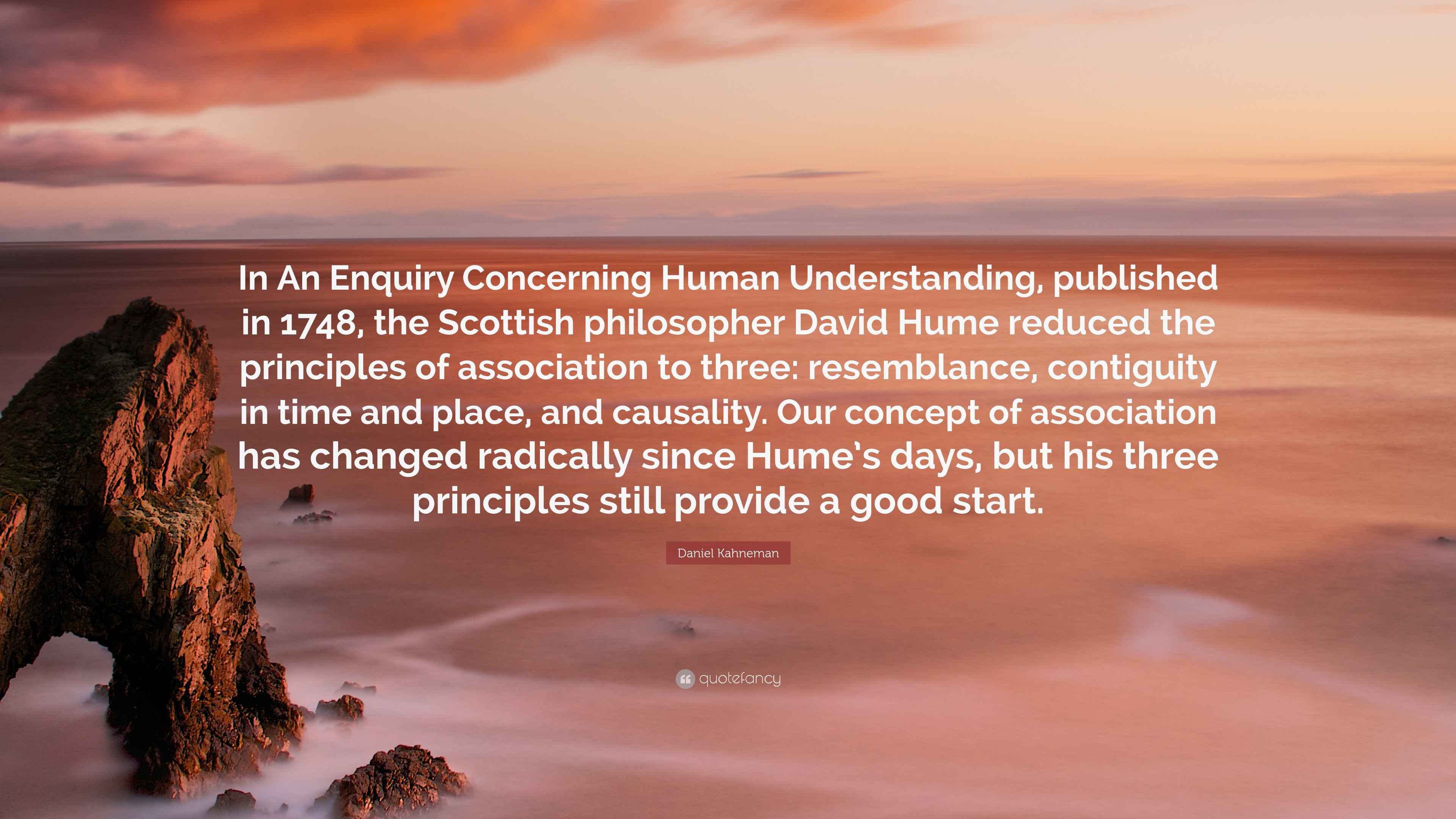
Yet thinking about the issue raises problems: what demonstrative grounds can we have that prove, that guarantee the future will be the same as the present and past? Only upon such grounds can we genuinely infer from the present into the future and more importantly, rest secure in all our causal reasoning. Yet as someone once remarked: ‘Would you want to put money on it?’ That falling snow may taste of salt, that bread may cease to be nourishing, that the sun may not rise tomorrow. It is perfectly and logically possible that such continuity may cease.


In other words, our experienced world of matters of fact is assumed to continue as it has in the past so much so that we make causal inferences and predictions on their basis. We infer that the daylight is the effect caused by the sun rising every morning and that this will continue that the intentions (cause) of a friend to travel to France are evidenced by a letter received from him (effect) that bread has a positive effect on me caused by the nourishing powers contained therein.

Without the one thing, the consequent cannot follow or where the impression of one thing leads us to the impression of another.Ĭausality is for Hume, the basis for many of our inferences and deductions about the world. With resemblance, there is a picture and what the picture represents or resembles with contiguity there is the inherence of one thing in another as when we think of a room, we cannot but think it as being in a house, and with causality, one thing is said to cause an effect as when an injury causes pain. So he deduces experience displays resemblance, contiguity and causality. This knowledge, when reflected upon, displays regularity, displays coherence, it is not chaotic and arbitrary although Hume finds the opposite or contrary of this regularity perfectly possible. In his Enquiry Concerning Human Understanding (1748) Hume argues that all human knowledge is derived from ideas, the relation between ideas and impressions, matters of fact. Failure to recognize all of this has created unnecessary controversy concerning the relative merits of Kant's response to the problem of justifying induction.I’m trying to understand the differences and similarities to Kant and Hume’s theory about cause and effect.Ĭan you explain the the basics in which they are similar and different from each other? the transcendental unity of apperception, cause involves regulative, not constitutive (or demonstrable) principles. Not only is causality a Verknuepfung, rather than a Bedingung, thereby relegating it to a lower level of generality, but its presence in the table of categories simply signifies the possibility of its application at any time, not the necessity for a universally valid interpretation of temporal succession as given in the manifold, a specification that is only introduced after the schematism, in the Analogies of experience.
#Hume causality full
Kant's answer to Hume is seen to comprise the following: agreement with Hume that causal connection cannot be inferred from experience moving beyond Hume in making causal conceptions presuppositions of experience (where “experience” has the full force of “scientific knowledge”, and not merely its minimal meaning of spatio-temporal representations in appearance) distinguishing causality from other, more basic presuppositions of experience (where experience is tacitly defined in terms less strong than those associated with the advance to scientific knowledge).


 0 kommentar(er)
0 kommentar(er)
